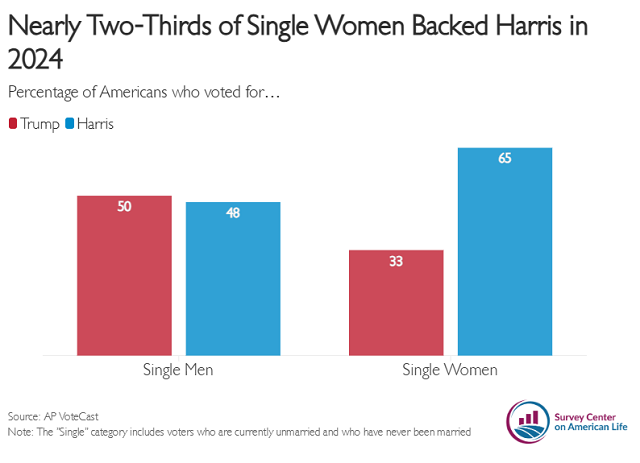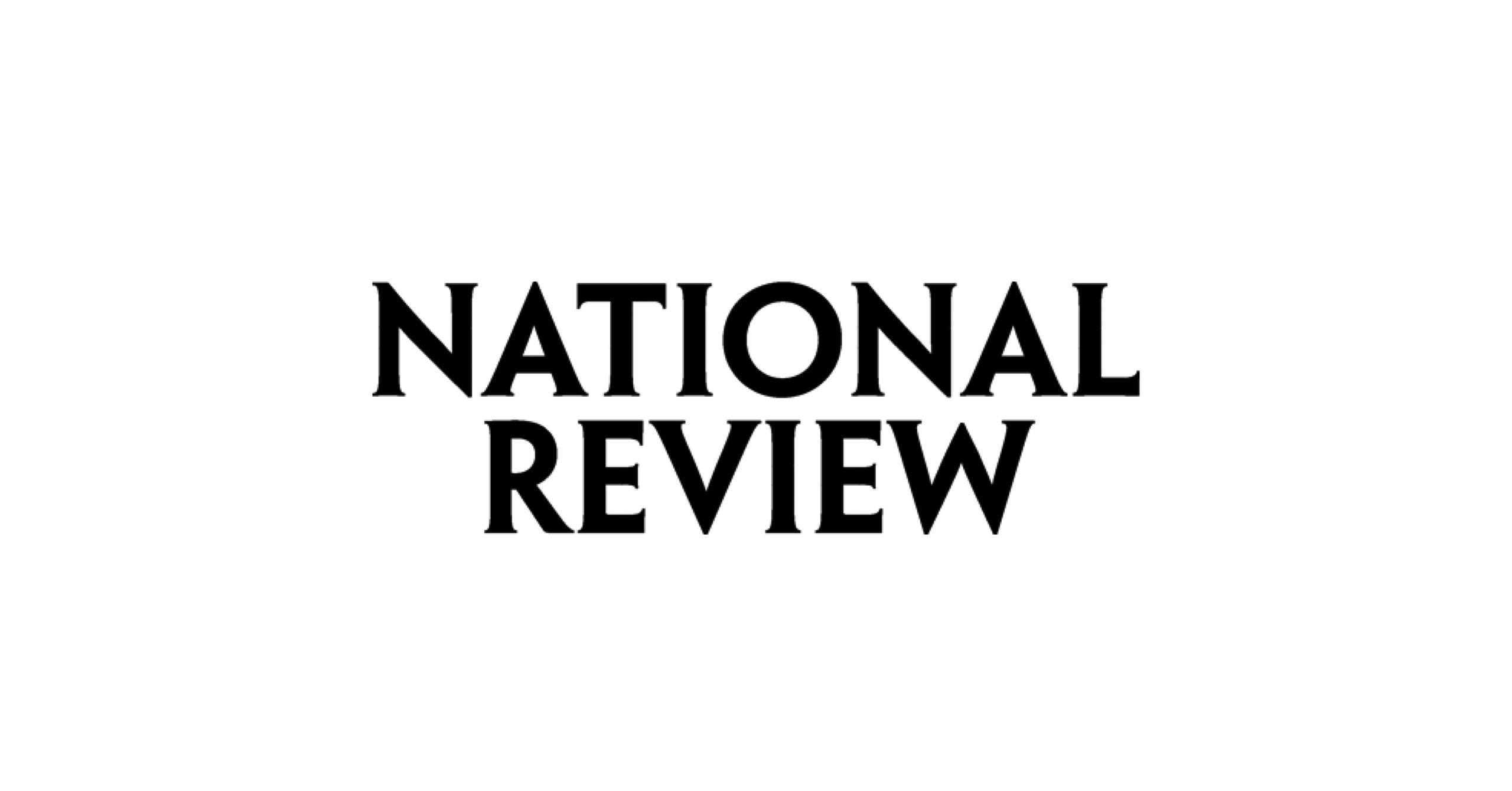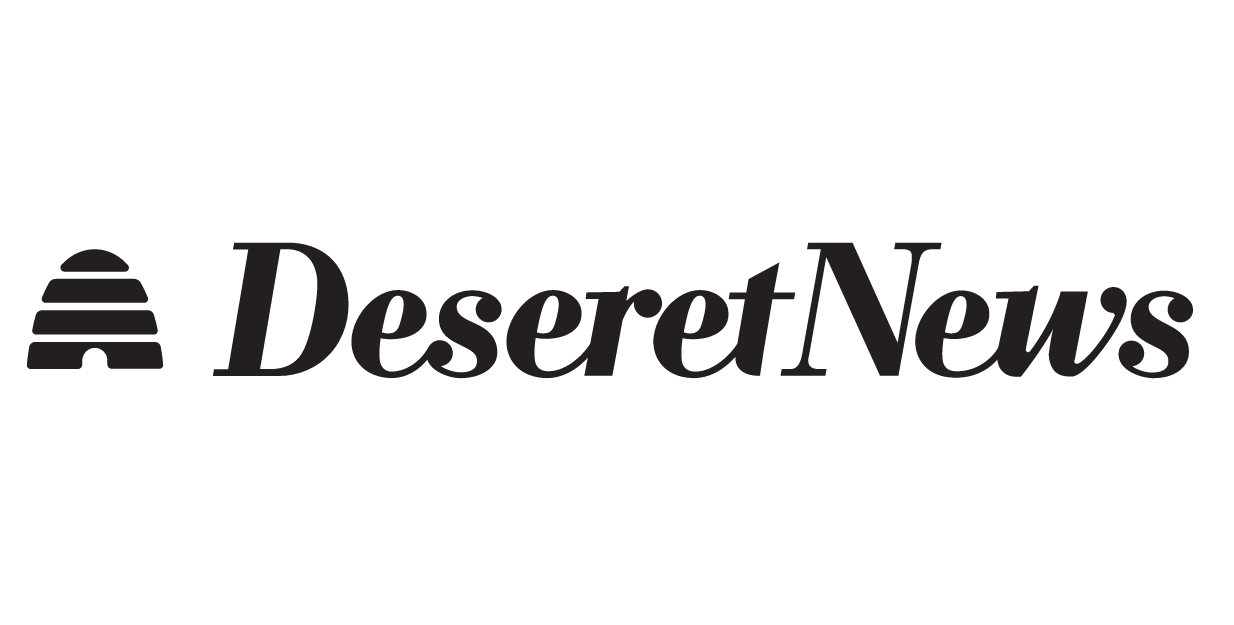Commentary February 14, 2025
Are Political Differences Behind America’s Dating Woes?

Institute for Family Studies
Most single Americans are not enjoying the process of finding a partner. A new report, “Romantic Recession: How Politics, Pessimism, and Anxiety Shape American Courtship,” finds that more than 6 in 10 single men and single women believe dating is more difficult today than it was 10 years ago. And a Pew Research Center report found that roughly two-thirds of singles said their dating lives are not going particularly well.
Is political division at least partly responsible?
Unlike previous elections, which saw most single men and women line up behind the same candidate, the 2024 election witnessed an historic divergence in voting. Single men preferred Donald Trump by a narrow margin, while nearly two-thirds of single women voted for Kamala Harris.

For many single women, a vote for Trump is a red flag. More than half (52%) of single women, including nearly three-quarters (73%) of college-educated single women, would be less likely to date a Trump supporter. Nearly 4 in 10 (39%) single women say they would be “very unlikely” to do so. Trump’s history of marital infidelity, sexual abuse allegations, and denigration of women have made him repellant to many women, especially those on the political left. Asked why she would not date a Trump supporter, one 24-year-old woman put it bluntly: “I’m not going to date someone who votes against my best interests.”
It’s not only women who want politically-aligned partners, the same poll found that roughly 4 in 10 single men said they would be less likely to date a woman who identifies as a feminist. The reasons are often eerily similar. One 34-year-old man said he would not date a feminist because “they would not have my best interest in mind.”
Americans on the political left, particularly liberal women, are more likely than others to distance themselves from people with different political views. As I’ve written previously “No group is more likely to end a friendship over politics than liberal women are; 33% say they stopped being friends with someone because of their politics.” In the era of online dating, social media, snap judgments, and swiping based on little information, political identity has become more salient in dating considerations. By allowing users to post political views, dating platforms make it easier than ever to write off people who might have political differences. In 2022, Pew found that 62% of women on dating apps say that it is important for the profiles they view to include political affiliation. The shallowness of dating apps makes it easier to screen out offending profiles.
But people are complicated and full of contradictions. They are not reducible to a single voting decision.
It’s true that Trump did historically well among young men, but their support of him is evidence of a profound ideological conversion. Young men are less liberal than single women, but most still favor same-sex marriage, and believe abortion should be legal in at least certain circumstances. Trump won nearly 6 in 10 “moderate” young men and more than 1 in 5 “liberal” young men.
The political views of feminist women are not always so clear-cut either. In talking with left-leaning women on college campuses around the country, I’ve heard a surprising amount of support for traditional courtship practices. Most single women still want men to ask them out, plan the date, and pay for the outing. Plenty of young women still believe men should be chivalrous—to be respectful, assertive, and protective in their interactions with women. I didn’t hear a single objection about men holding a door open for women. A self-described liberal and feminist young woman attending Barnard College in New York City shared her view on dating:
I want to be asked out. I don’t want to have to be asking, I don’t want to pay for my dinner, and I want them to open the door for me. [I still want that,] which is the problem, because I’m also very much the person who’s very independent and does my own thing. I think it’s a very common thing, because my friends feel the same way. Even my friends who are very strong women and are super interesting and smart are like I still want my meal to be paid for because it’s the gentleman thing to do.
Many young adults are still figuring out their political beliefs, and few say their political views are critical to who they are. A 2021 study found that less than 1 in 5 young men and a similar number of young women said their political views are a “very important” or “one of the most important” parts of their identity.
None of this is to say that diverging political perspectives are irrelevant in dating and relationships. This can complicate relationship dynamics. But the world is a complicated place, and young people recognize that most social problems do not have easy answers. Progress often requires making compromises and tradeoffs. The same is true when it comes to romantic relationships.








